
Taiwan was not a major issue in the 2024 presidential election. However, Donald Trump will need to address the growing tensions between Taiwan and China. As China strengthens its military and eyes a solution to the Taiwan question, the United States will need to consider its response carefully. Beijing is expected to have the means to take Taiwan by force by 2027 though any attempt will be difficult. This article will examine what Trump’s electoral victory could mean for Taiwan.
Why This Matters
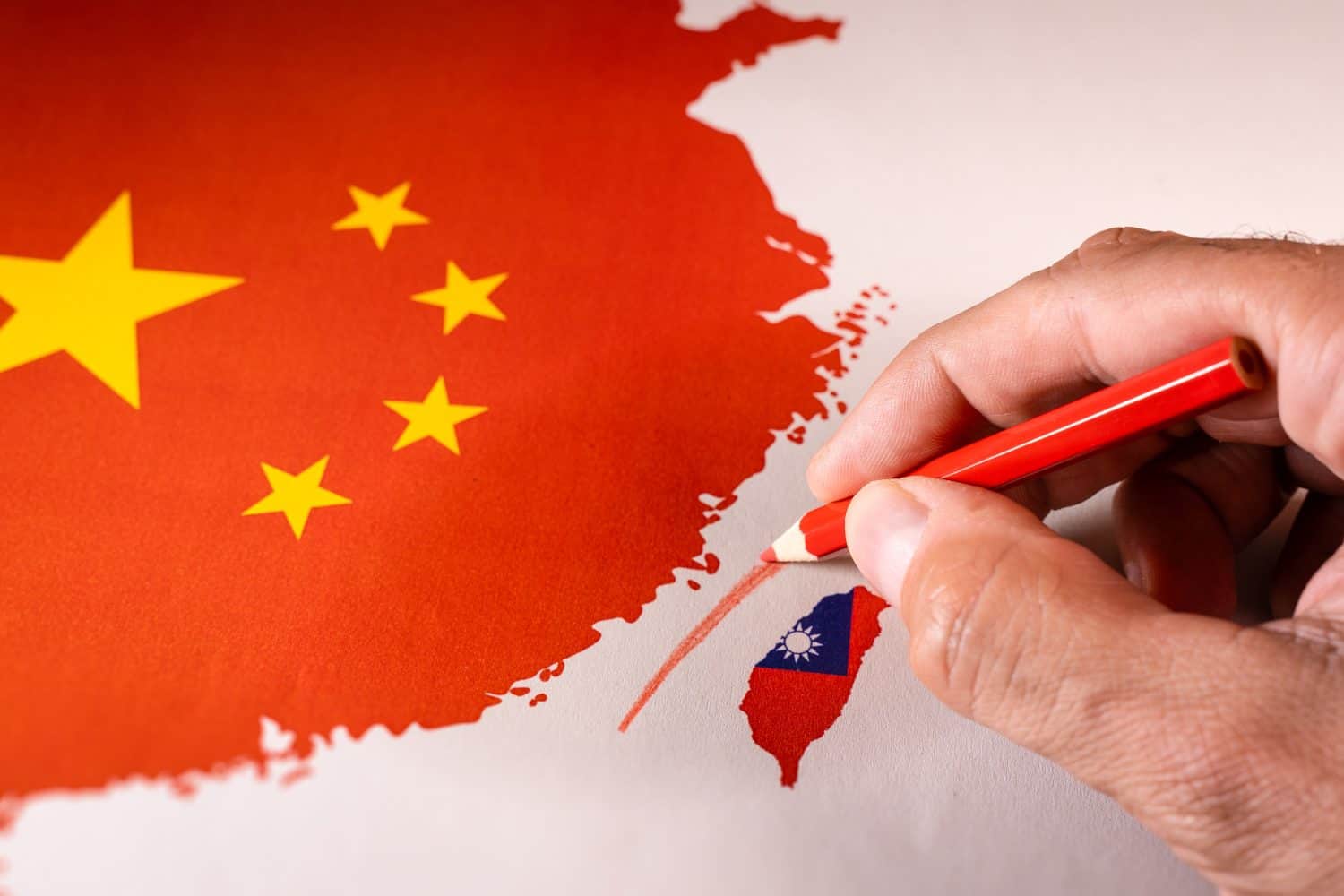
China views Taiwan as a separatist province that must be returned to the fold by force if necessary. The People’s Liberation Army (PLA) doesn’t yet have the capability to take Taiwan, but that may soon change. The long-standing policy of strategic ambiguity may have outlived its usefulness. It will be up to the next administration to shape American policy in the Taiwan Strait.
Historical Context
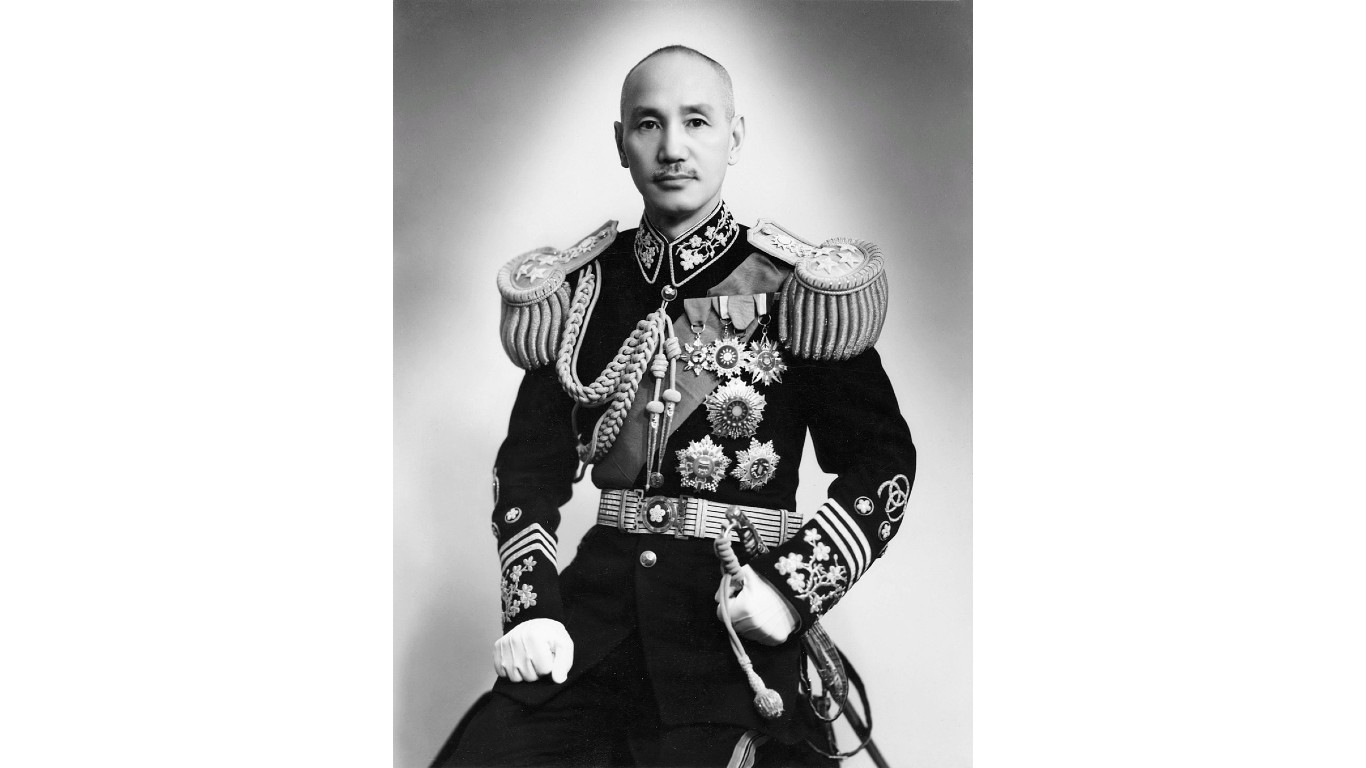
The Chinese Civil War ended in 1949 with the defeat of the nationalist side and the creation of the People’s Republic of China. Chiang Kai-shek’s toppled regime fled to nearby Taiwan to establish the Republic of China. The Eisenhower administration passed the Formosa Resolution in 1955, granting the president the authority to defend Formosa (Taiwan).
The United States refused to recognize the People’s Republic of China for 30 years. As far as Washington (and most of the world) was concerned, Chiang Kai-shek was the leader of the “real” China. That perception changed in the 1970s.
In 1971, the UN switched recognition from Taipei to Beijing, and relations between Beijing and Washington warmed significantly. The United States accepted Beijing’s “One China” policy in 1972 and finally recognized the People’s Republic of China in 1979. However, the US did not wholly abandon Taiwan. The Taiwan Relations Act – still the cornerstone of American policy today – passed at the same time as the shift in recognition toward Beijing. The act outlines American policy toward Taiwan’s security:
…the United States shall make available to Taiwan such defense articles and defense services in such quantity as may be necessary to enable Taiwan to maintain a sufficient self-defense capacity as determined by the President and the Congress.
It’s unclear if the United States would come to Taiwan’s aid if China invaded, but there is precedent for American presidents aiding Taiwan. In 1996, the Clinton administration sent a carrier group to the Taiwan Strait as a show of force in response to weapons tests carried out by Beijing. The United States’ opaque position toward the China-Taiwan question is deliberate. Strategic ambiguity has been the American position for decades. However, the Chinese military build-up may require a more assertive position.
Trump and Taiwan
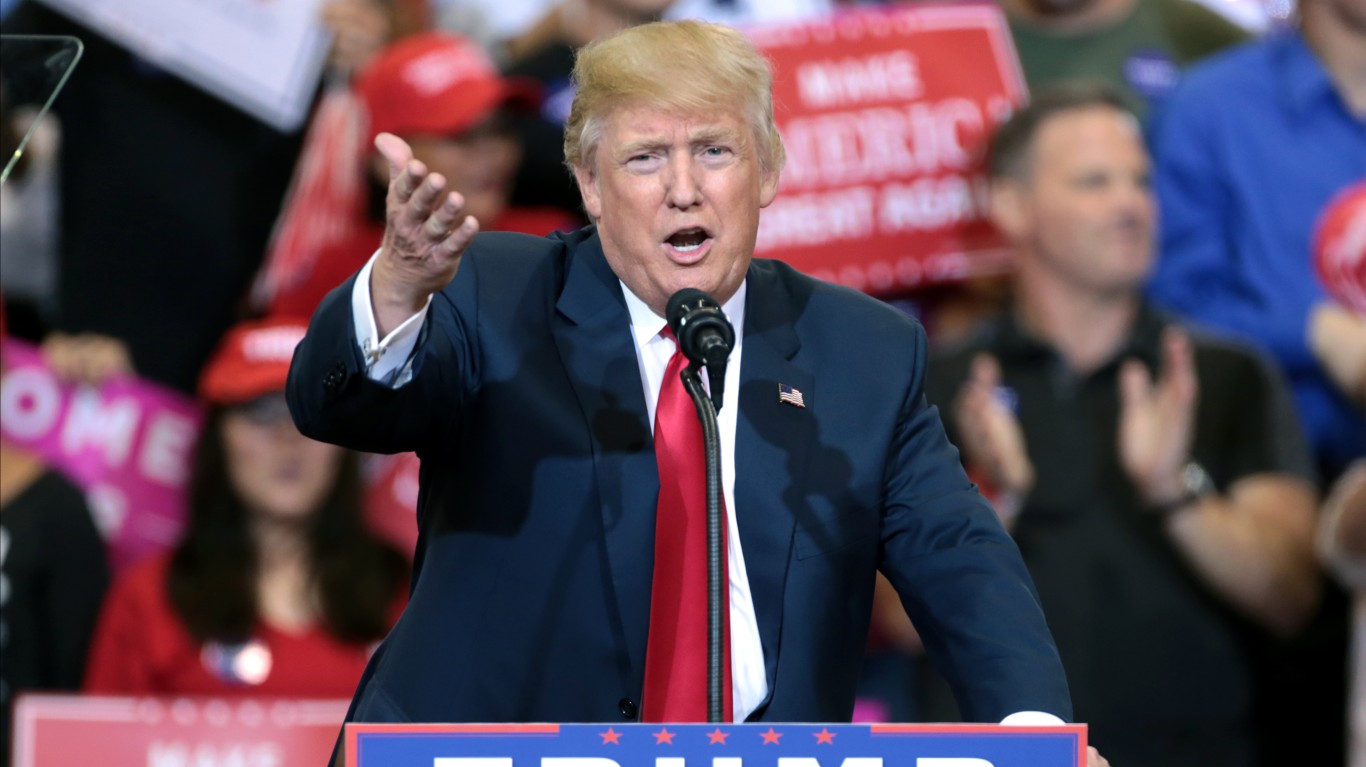
Donald Trump is not a particularly popular figure in most countries. However, he was quite well-regarded in Taiwan during his term and favored over Joe Biden in 2020. As President-elect In December 2016, he broke with protocol to personally congratulate Tsai Ing-wen on her electoral victory. Keith Krach, the Under Secretary for Economic Growth, Energy, and the Environment, and Alex Azar, Secretary of Health and Human Services, both visited Taiwan in 2020. They were the highest-ranking American officials to visit Taiwan in decades.
More recent comments on the campaign trail suggest Trump’s outlook toward Taiwan has hardened. He spoke critically of Taipei’s dominant global position in semiconductor manufacturing and not paying enough for its defense. Additionally, he refused to say if the United States would come to Taiwan’s aid if China launched an invasion. This could be seen as a continuation of strategic ambiguity, but it may also signal a new policy direction. Trump takes a transactional view of foreign policy and has little regard for established precedent.
Politics
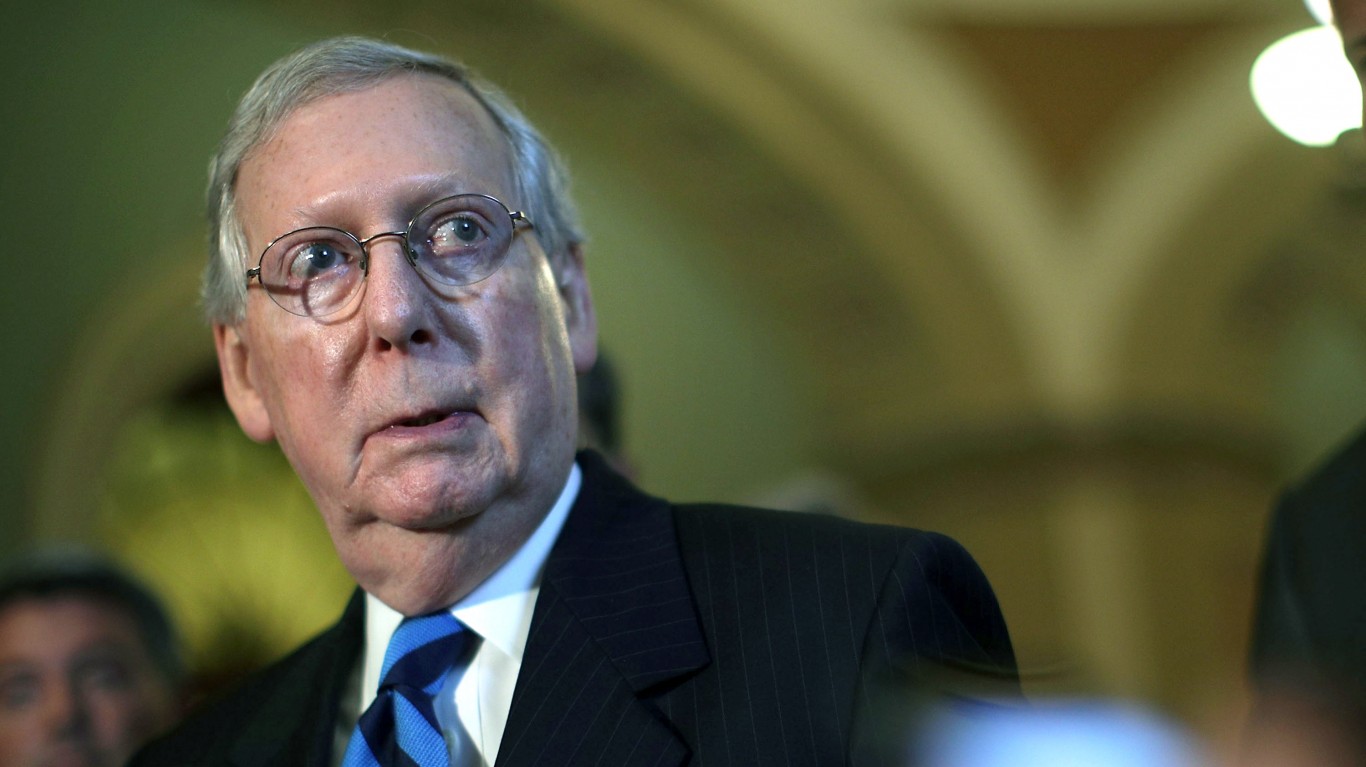
Donald Trump’s victory might not have been a great surprise given how close the polls were. However, the decisive manner of his win, along with the Republicans retaining the House and taking the Senate, means Trump has the trifecta. He struggled to pass his agenda in his first term but has indicated a more hands-on approach will come in his second term. Trump may not be as willing to send direct aid as his predecessor, but direct arms sales to Taiwan should still be possible. Taiwan enjoys such broad bipartisan support that any bills to sell weapons to the island won’t have any major opposition from the Democrats.
China Hawks
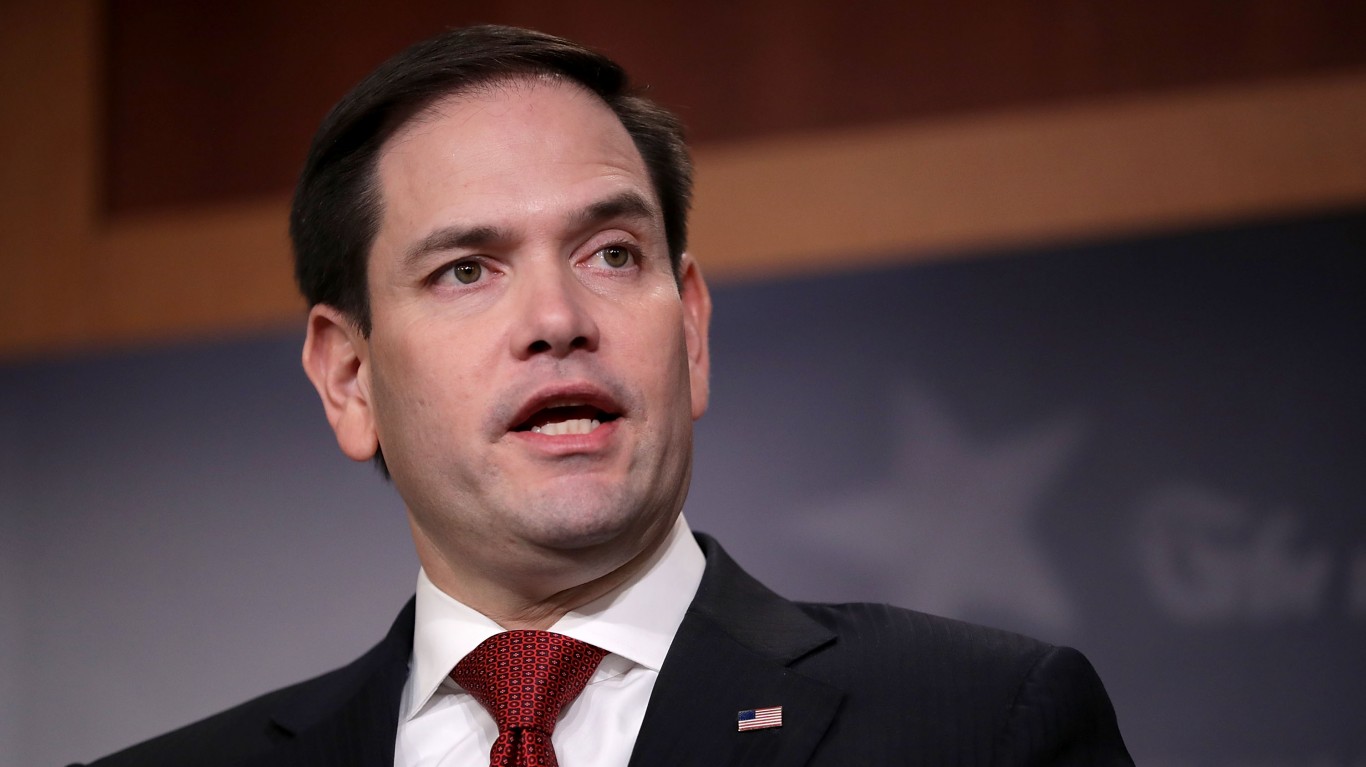
Trump’s pick for Secretary of State, Florida senator Marco Rubio, indicates his administration may take a tougher line on China. Rubio is an outspoken critic of China; in September 2024, the senator released Made in China: 2025, a report on Beijing’s industrial policy.
This report should serve as a wakeup call to lawmakers, CEOs, and investors. We need a whole-of-society effort to rebuild our country, overcome the China challenge, and keep the torch of freedom lit for generations to come.
Rubio isn’t the only China hawk tapped to serve in the next Trump administration. The president-elect’s picks for Secretary of Defense and national security advisor have spoken out against Beijing.
JD Vance

Another key factor to consider is Trump’s running mate. Donald Trump is second only to Joe Biden as the oldest president in American history. It is certainly possible that Vance could ascend to the presidency before Trump’s second term is over. Vance gave some insights into his position on Taiwan in a June 2024 interview:
Our policy effectively is one of strategic ambiguity. I think that we should make it as hard as possible for China to take Taiwan in the first place, and the honest answer is we’ll figure out what we do if they attack. The thing that we can control now is making it costly for them to invade Taiwan, and we’re not doing that because we’re sending all the damn weapons to Ukraine and not Taiwan.
Taiwan and ‘America Skepticism’

The Taiwanese public preferred Trump to Biden in 2020, but Harris was slightly preferred in 2024. Younger Taiwanese are increasingly skeptical of the United States as an ally. China is suspected of conducting information warfare on Taiwan to drive a wedge between Washington and Taipei. Beijing has created a narrative that the United States merely sees Taiwan as an expendable chess piece.
How Trump deals with Ukraine could have a huge bearing on future relations with Taiwan. The United States’ credibility could be at stake if the US is seen as effectively abandoning Ukraine in any future peace deal.
Deterrence and the Porcupine Strategy
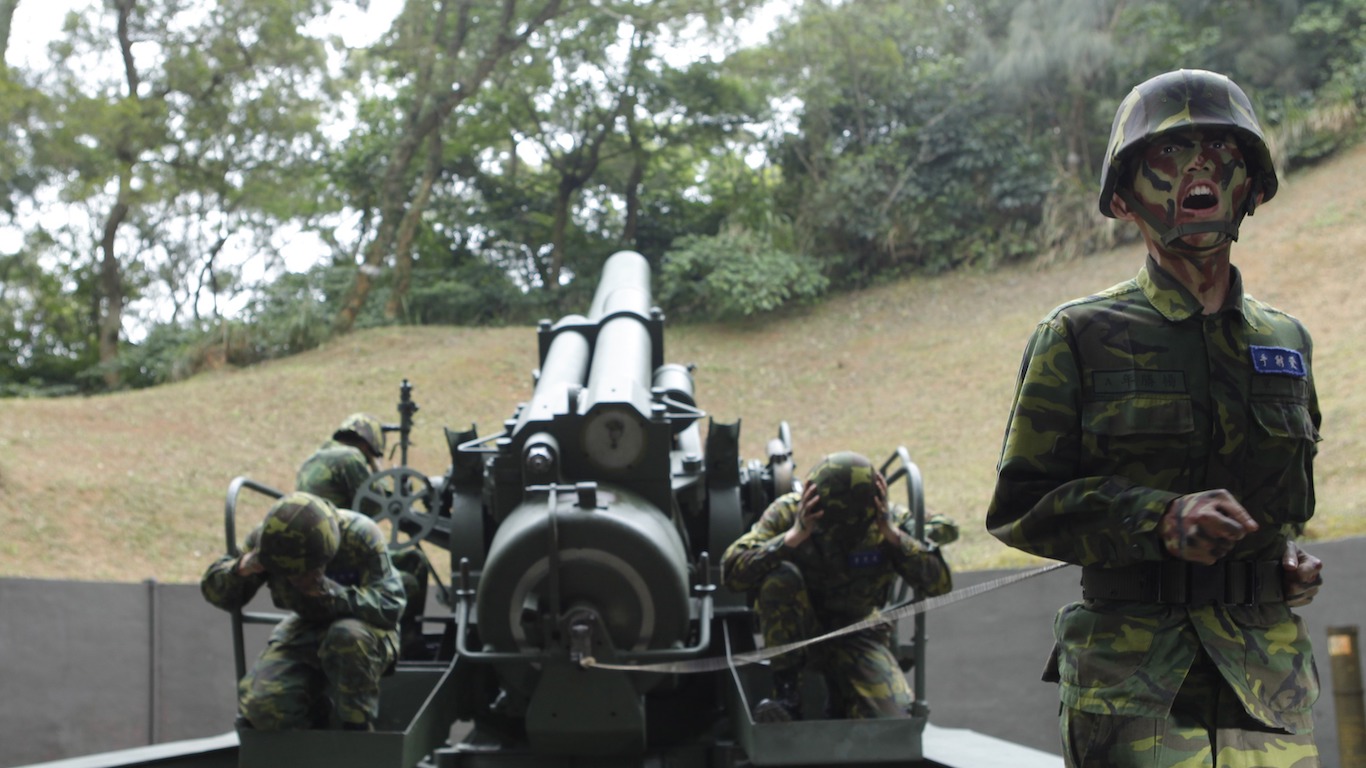
Taiwan’s military is no match for China’s, but geography is a huge force multiplier in Taiwan’s favor. The island is a natural fortress with only a few viable landing sites. Taipei is well aware of these “Red Beaches” and frequently runs training exercises on them. Taiwan’s defensive doctrine is sometimes referred to by American and Taiwanese strategists as the ‘porcupine strategy.’ In essence, it is a defensive posture that uses multiple layers of low and high-tech defenses to inflict great pain on an invading foe. Taiwan would seek to hold the PLA at bay long enough for the United States to intervene. The approach works with the strength disparity with China, but its main shortcoming is its passive nature.
For the United States, the primary goal is to make an invasion so costly and daunting it won’t be attempted in the first place. For decades, dispatching a carrier group to the Taiwan Strait as a show of force would suffice. However, Beijing has invested heavily in invested heavily in anti-access and aerial denial (A2/AD) munitions. So-called “carrier killer” missiles could keep the US Navy at arm’s length and limit Washington’s options for intervention. Deterrence requires credibility, and if China detects a lack of will from the Trump administration to defend Taiwan, it may well launch an attack.
Strategic ambiguity has allowed the United States to enjoy the best of both worlds for several years, but that approach may no longer be viable. At a minimum, Taiwan needs to increase its defense spending, and the United States needs to increase its military support. Because Beijing takes such a dim view of any statement in support of Taiwan, diplomatic options will be limited.
Conclusion

Trump’s victory will probably not immediately impact Taiwan, but if tensions between Beijing and Taipei continue to rise, a revision of the strategic ambiguity policy may be needed. Deterrence remains the goal for Taiwan and the United States, but it will be difficult to maintain the status quo without substantial investment in Taiwan’s defenses. Trump’s base reluctance to send military aid abroad could embolden Beijing, but his unpredictability may remain in China’s hands. Taking Taiwan will be a difficult mission for the PLA, but any Chinese attempt will represent a failure of American policy.
It’s Your Money, Your Future—Own It (sponsor)
Retirement can be daunting, but it doesn’t need to be.
Imagine having an expert in your corner to help you with your financial goals. Someone to help you determine if you’re ahead, behind, or right on track. With SmartAsset, that’s not just a dream—it’s reality. This free tool connects you with pre-screened financial advisors who work in your best interests. It’s quick, it’s easy, so take the leap today and start planning smarter!
Don’t waste another minute; get started right here and help your retirement dreams become a retirement reality.
Thank you for reading! Have some feedback for us?
Contact the 24/7 Wall St. editorial team.
